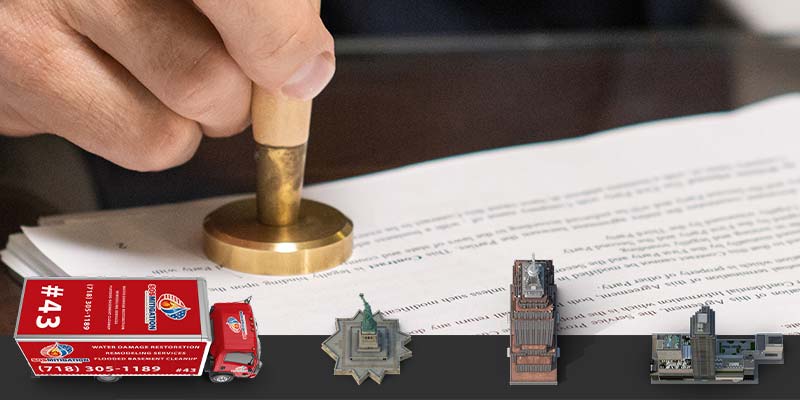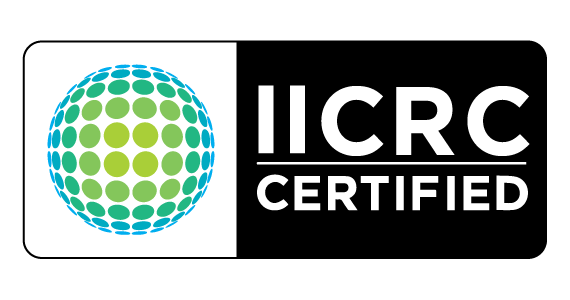Before renovating a house, there are a few things you should know:
- It’s essential to consult with an experienced contractor to get an estimate of the costs associated with the project.
- You must be aware of the possible risks involved in any home renovation, such as structural damage, asbestos exposure, or lead paint poisoning.
- Having a clear vision of your goals for the project is essential, as this will help you set a budget and avoid going over budget.

Planning and Design Before a Renovation
Before starting any home renovation project, it is essential to sit down and plan things carefully. This means creating a customized budget and timeline for the project and deciding what kind of changes you want to be done to your home. It’s also a great idea to consult with an experienced contractor or an architect designer and get an idea of what the fees associated with the project would be.
Potential Risks Associated With Home Renovations
There are a few possible risks associated with home renovations. One of the most common risks is structural damage, which can occur if the house is not properly supported during renovation. It may lead to severe injuries or even death. Asbestos exposure is another potential risk, as this material can cause lung cancer if inhaled. Finally, lead paint poisoning is a serious health risk that can occur if lead paint is disturbed during a renovation project.

Setting a Budget for Your Home Renovation
Setting your budget is a crucial thing to do before beginning a home renovation project.
This will help you avoid overspending on the project and ensure you have enough money to complete it. It would be best to get multiple estimates from different contractors before choosing one for the job.
Is It a Good Year to Renovate a Home in 2022?
Spending on home remodeling projects is anticipated to continue to rise through 2022. According to studies done at Harvard University, spending on home renovation and upkeep will increase by 8.6% in the second half of 2022. From endeavors that are being prompted by homes that already exist, integrators are seeing more possibilities.

What Are the Most Frequently Done Home Renovation Projects?
The most popular home renovation projects include kitchen remodeling, bathroom remodeling, and adding an addition to the house, also known as pop-top addition. Other popular projects include:
- Finishing a basement.
- Painting the outside or inside of the house.
- Installing new windows or doors.
Yard and Landscape are also gaining popularity as people look for ways to improve their curb appeal.
What Is the First Thing to do When Remodeling a House?
You need to know quite a bit before you take on remodeling a house. It’s not just about having the proper tools and doing the work – it’s also about getting the proper permits, knowing which areas of the house you can and cannot modify, and being prepared for unforeseen problems.

Before beginning any work, you’ll need to consult with your city or county planning office and find out if there’re any special regulations or permits you need to remodel your home. Depending on the project’s scope, you may also need to hire an architect or engineer to help you plan the work.
Once you’ve gathered all of the necessary permits and permissions, you can start work on your remodeling project. But even before you begin, it’s helpful to list everything you want to change about your home. You can prioritize the work and ensure everything gets done promptly.
Of course, one of the most important aspects of remodeling a house is staying within your budget. It’s all too simple to become enthralled in the endless possibilities and end up spending more than you planned. To avoid this, set a realistic budget and stick to it as closely as possible.
There will undoubtedly be some surprises when you’re remodeling a house. But if you’re prepared for them, they won’t throw you off course. With some planning and forethought, you can complete your home renovation project and end up with the home of your dreams.

How Do I Start Renovating My House?
Remodeling a house can be an exciting and rewarding experience. But it’s also a big undertaking that requires careful planning, research, and preparation.
Before you begin any home renovation project, you must know what you’re getting into and what to expect. This includes understanding the costs involved, the timeline for completion, the potential disruption to your daily life, and any potential risks or hazards.
What to consider as you start planning your home renovation:
Set a budget and stick to it.
Remodeling a house can be expensive, so setting a budget is essential before you start. Make sure to factor in the cost of materials, labor, permits, and any other unexpected expenses that might come up. Once you have established a budget, stick to it as closely as possible to avoid going over budget and ending up with a project you can’t afford to finish.

Plan for disruptions.
Home renovations can be disruptive to your everyday life, so it’s essential to plan. If possible, try to schedule your project during a time when you can take some time off work or make other arrangements to minimize the impact on your daily routine.
Hire a reputable contractor.
Choosing a contractor is one of your most important decisions during your home renovation. Be sure to research and hire a reputable company with experience with the type of renovation you’re planning. Get multiple bids, read reviews, and ask for references before making your final decision.

Know the risks.
All home renovation projects come with some risks, so you must be aware of the potential hazards before you begin. Be sure to thoroughly review your project’s safety precautions and ensure all workers are adequately trained and equipped to handle any risks.
Have realistic expectations.
It’s critical to have realistic expectations for your home renovation project. This includes understanding that there may be unforeseen delays or unexpected costs. It’s also important to remember that the finished product may not look like you envisioned it, but that’s normal and to be expected.
Keeping these points in mind, your home renovation project will go more smoothly and successfully. With careful planning and preparation, you can turn your house into the home of your dreams.
Can I get a Loan For House Renovation?
If you’re planning to finance your home renovation with a loan, there are a few things to keep in mind. First, you’ll need to determine how much money you need to borrow. This will depend on the cost of your project and how much equity you have in your home.

You’ll also need to choose the correct loan type for you. Home equity loans and lines of credit are popular choices for home renovations because they offer low-interest rates and flexible repayment terms. However, personal loans and credit cards can also be used for smaller projects.
Before taking out a personal loan for home improvements, we suggest researching your alternatives for refinancing or borrowing via home equity. Personal loans have a much higher interest rate than other kinds of loans. Using a personal loan to pay for house renovations may be the best option if you don’t have a lot of equity available to borrow.
Are Home Renovation Loans Tax Deductible?
Home renovation loans are not tax deductible. The only time you can deduct the interest on a home improvement loan only if you use the loan to purchase or improve your primary residence and itemize your deductions.
If you use a home equity loan or HELOC to finance your renovation, the interest you pay on loan is usually tax-deductible. But there are some restrictions. The IRS will only allow you to reduce the interest if you use the loan proceeds to buy, build, or substantially improve your own home. This means you can’t use a home equity loan to pay for things like furniture, appliances, or other home décor.

Is $50,000 Enough to Renovate a House?
The short answer is maybe. It all depends on the scope of your renovation project and the condition of your home. A $50,000 loan could cover a complete kitchen or bathroom renovation or pay for smaller projects like painting, flooring, or minor repairs.
If you’re planning a major renovation requiring significant structural work or high-end finishes, you’ll likely need to borrow more than $50,000. And if your home requires major repairs before you can even start renovating, you may need to take out a larger loan to get the property up to code.
The best way to figure out how much money you need to finance your home renovation is to get multiple bids from contractors and review your options with a lender. This will give you a better idea of the actual cost of your project and help you choose which loan is right for your needs.
When it comes to home renovations, there are many things to consider before getting started. By careful planning and preparation, you can turn your house into the home of your dreams. Just be sure to research your options, set a realistic budget, and get everything in writing before starting any work.

Should You Do Walls or Floors First?
It’s a common question among homeowners who are planning a renovation. And there’s no right or wrong answer. It depends on your specific project and what will work best for your home.
If you’re renovating an entire room, it may be easiest to start with the flooring. You can avoid damaging new floors with heavy furniture or appliances. Also, if you’re planning to install new flooring throughout your home, it’s best to do it all at once to avoid mismatched colors or styles.
On the other hand, if you’re only renovating one area of your home, like the kitchen or bathroom, you’ll want to start with the walls. This way, you can avoid working around new floors or appliances. Make sure you take accurate measurements before beginning any work to avoid mistakes that could cost you time and money.

Should You Hire a Contractor, or Should You Do It Yourself?
This is another common question among homeowners planning a renovation. And again, there’s really no right or wrong answer. It depends on your specific project and what will work best for your home.
Hiring a professional contractor is best if you’re planning a major renovation requiring significant structural work. They have the knowledge and expertise to get the job done right, and they can help you avoid making costly mistakes.
However, if you’re planning a minor renovation or one that doesn’t require any structural work, you may be able to do it yourself. Just be sure to research before starting any work to avoid making costly mistakes.
Is Remodeling a Home Hard?
When you’re considering remodeling a house, there are a few things you need to keep in mind before starting any work. These include:
- Set a budget: This is the most critical aspect of remodeling a house. You need to set a budget and stick to it. Otherwise, you may wind up spending more money than you anticipated.
- Get quotes: Once you have a budget, start getting quotes from contractors. This will provide a sense of how much the project will cost you.
- Draw up plans: If you’re planning on making significant changes, draw up plans first. This way, you can get an idea of what the finished product will look like and ensure everything is up to code.
- Get permits: Depending on the project’s scope, you may need to get several different permits from your city or county. Be sure to check with your regional building department before starting any work.
- Hire a professional: Unless you’re an experienced handyman, it’s probably best to hire a professional to do the work for you. You’ll also be able to ensure that the task was completed correctly and in accordance with the code.
Remodeling a house can be a lot of work, but it’s also a great way to add value to your home. Be sure you do some research and plan ahead before starting any work. Otherwise, you could end up spending more money than you bargained for.

Should I Remodel Outside or Inside First?
Prioritize the basics and exterior work first. It’s natural to want to get on with your project’s next stage, but ensure the home is safe before you start working inside. If necessary, replace windows and install a new roof before beginning the interior renovation. Not only is it essential to make your home safe and functional, but you’ll also save money in the long run by doing exterior work first.
Sometimes, it may make more sense to start with interior work. For example, if you’re planning to add an addition, you’ll need to frame the walls and pour the foundation first. After that, you can now move on to the interior work.
It’s also important to remember that some projects need to be done in a specific order. For example, if you’re planning to install new flooring, you’ll need to do that before you can install new cabinets or appliances. And if you’re planning to add a new bathroom, you’ll need to do the plumbing work before you can install the fixtures.
So, when it comes to remodeling a house, there’s no right or wrong answer. It depends on your specific project and what will work best for your home. Be sure to conduct research and prepare ahead of time before getting started.








